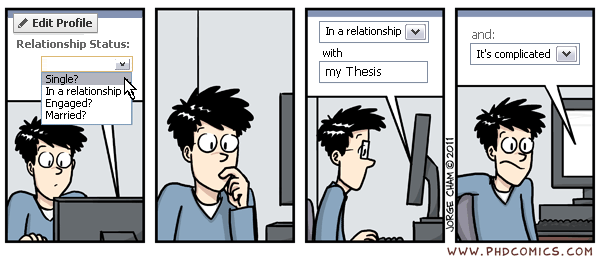I couldn't shake the sense that the college simply wanted to enroll as many students as possible - and that colleges in general had become more focused on the bottom line than in my day. The system had ended up expanding in ways that industry always expands: by jacking up prices, putting money into public relations, and broadening the customer base by marketing even to customers dubiously served by the product.There is simply nothing for me to disagree here, and that is the really awful thing!
If my informal observations about the tenor of our national discourse are accurate, however, many of those customers are finally starting to ask some tough questions - chief among them: Is all this higher education really necessary?
The author adds, almost like a postscript:
And while the colleges do claim to instill critical thinking skills, these days, I'm not sure they're thrilled to be the focus of so much critical thought.True. In all my years since the first day as a graduate student, I have never been a witness to this much of a public scrutiny and commentary on the higher education institutions.
Speaking of critical thinking skills of students, one of the common worries that faculty like me have is that students don't seem to spend enough time on their readings, homework, projects, and the like, which we collectively refer to as "study time." There are plenty of reasons one might explore, and that is what this essay in the AACU's Liberal Education does.
While more often than not we tend to pin the blame on students, the essay points out that students have rational explanations for their behavior. I am immediately drawn to reasons like "More students are now working for pay, and the number of hours worked has risen as well" and "employers may be relying less on grades and more on educational pedigree, that students have recognized and responded to this preference, and that this has reduced achievement orientation in college."
And those are often talked about a lot, even within the academic walls. But, what is usually avoided within those same walls is the following:
Between 1975 and 1984, the proportion of faculty at four-year institutions who reported a greater interest in teaching than in research dropped from 70 percent to 63 percent. Faculty agreement with the proposition that teaching effectiveness, not publication, should be the primary criterion for promotion dropped from 70 to 58 percent. And the share who agreed with the statement “In my department, it is very difficult to achieve tenure without publishing” rose from 54 to 69 percent (Boyer 1987). These comparisons use 1975 rather than 1961 as the baseline, so they likely understate the full extent of the change in faculty attitudes and departmental practices between 1961 and 1981. But it is clear that the sharp decline in study time roughly coincided with an increasing emphasis on scholarly productivity in faculty incentives and preferencesOf course, when we have shifted the emphasis from students and their learning and, therefore, teaching, to research, most of which is pretentious, well, we draw a similar response from students, right? We are at a ridiculous stage now that faculty and administrators at universities like mine might not even want to refer to themselves as being at "teaching universities" anymore! OMG, if anybody should think of teaching!









